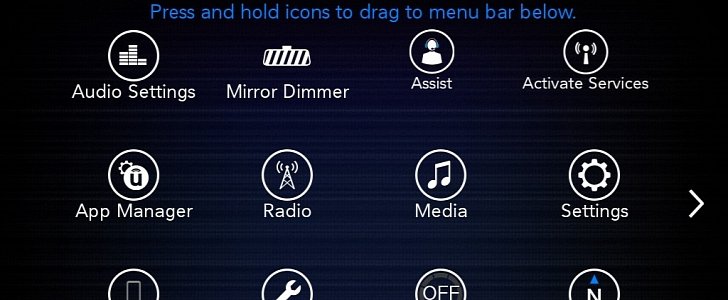Our smartphones get seamless updates over-the-air. These are necessary in today’s world, and manufacturers perform them to bring extra safety and more functionality to these devices.
The majority of modern cars does not have this feature, although some of them can be updated "the old fashioned way" if manufacturers allow it.
Tesla is the only exception to this rule, as its cars receive periodical updates, over-the-air, so that they can be smarter and better, in all matters that are technically possible with today’s technology.
While this kind of update is seen as something futuristic for some vehicles of today, a recent study has revealed that this is the future of the automobile industry. According to ABI Research, the industry is preparing to make over-the-air updates a regular thing for cars.
The survey specialists noted that 3.3 million vehicles were recalled in the USA last year to receive updates of their multimedia units. By 2022, 200 million vehicles could get over-the-air software upgrades.
These automobiles will probably start off with small improvements, as automakers will not risk damaging thousands of multimedia units at once with an update that may affect the functionality of vehicles that receive it if something goes wrong during the data transfer.
This rarely happens with smartphones, but people usually have a good Wi-Fi connection at hand when updating their handsets, which is something that might not be available for cars everywhere.
We must note that the implementation of LTE/4G connections in cars, most of them built-in from the factory, will be a major factor in turning the over-the-air update process into an industry standard.
With this technology, automakers could fix minor glitches of their multimedia units, which are becoming smarter by the day, while security vulnerabilities could be patched faster.
As USA Today notes, the updates could bring new firmware for transmissions and engines. This would imply a car that has interconnected its systems to the utmost level, which would also make it vulnerable to hackers if fail-safes are not adequately implemented. Evidently, you cannot be online and 100% safe from hackers, and not even a plugged-off live is safe from today’s identity thieves.
Tesla is the only exception to this rule, as its cars receive periodical updates, over-the-air, so that they can be smarter and better, in all matters that are technically possible with today’s technology.
While this kind of update is seen as something futuristic for some vehicles of today, a recent study has revealed that this is the future of the automobile industry. According to ABI Research, the industry is preparing to make over-the-air updates a regular thing for cars.
The survey specialists noted that 3.3 million vehicles were recalled in the USA last year to receive updates of their multimedia units. By 2022, 200 million vehicles could get over-the-air software upgrades.
These automobiles will probably start off with small improvements, as automakers will not risk damaging thousands of multimedia units at once with an update that may affect the functionality of vehicles that receive it if something goes wrong during the data transfer.
This rarely happens with smartphones, but people usually have a good Wi-Fi connection at hand when updating their handsets, which is something that might not be available for cars everywhere.
We must note that the implementation of LTE/4G connections in cars, most of them built-in from the factory, will be a major factor in turning the over-the-air update process into an industry standard.
With this technology, automakers could fix minor glitches of their multimedia units, which are becoming smarter by the day, while security vulnerabilities could be patched faster.
As USA Today notes, the updates could bring new firmware for transmissions and engines. This would imply a car that has interconnected its systems to the utmost level, which would also make it vulnerable to hackers if fail-safes are not adequately implemented. Evidently, you cannot be online and 100% safe from hackers, and not even a plugged-off live is safe from today’s identity thieves.








